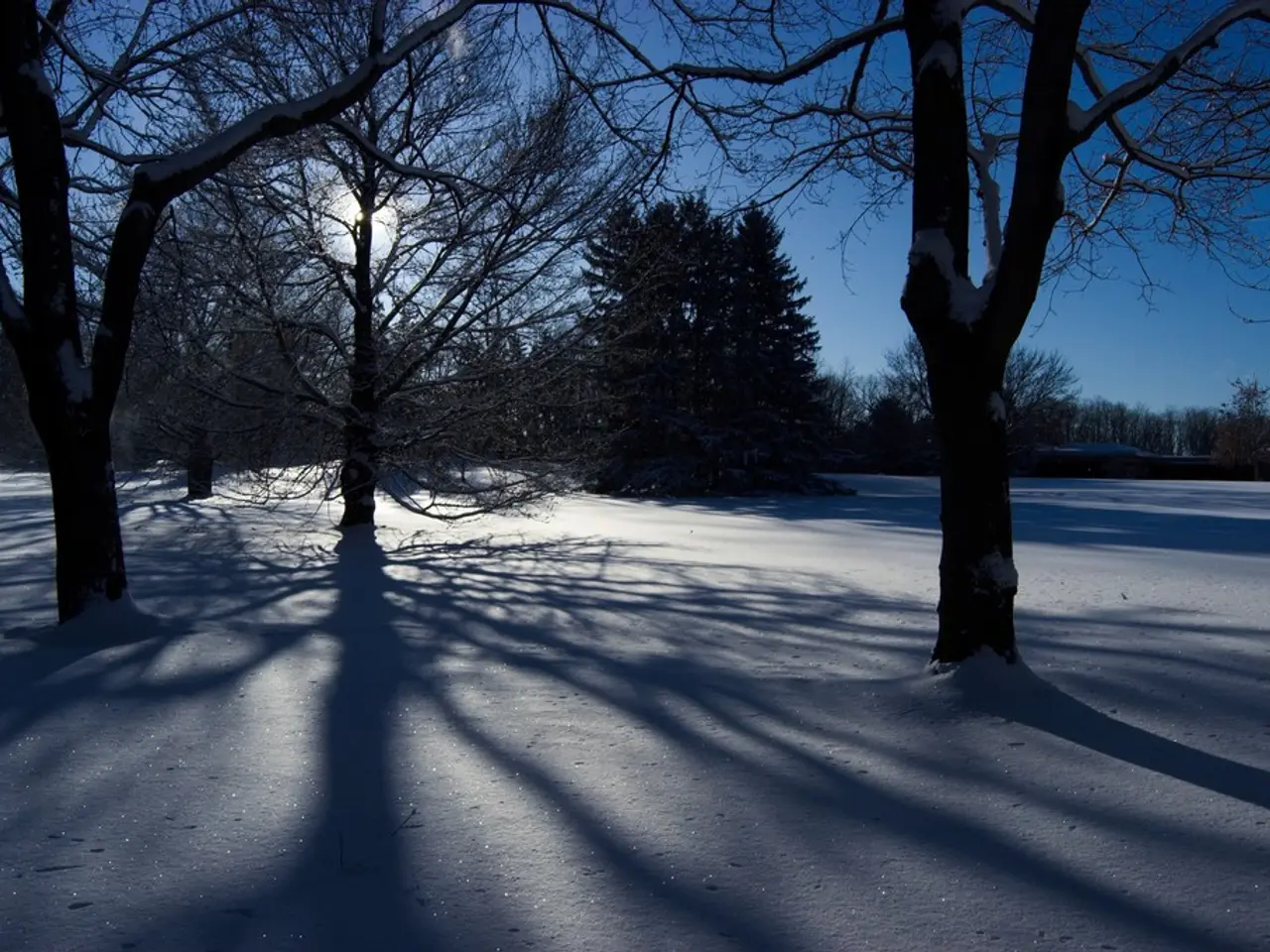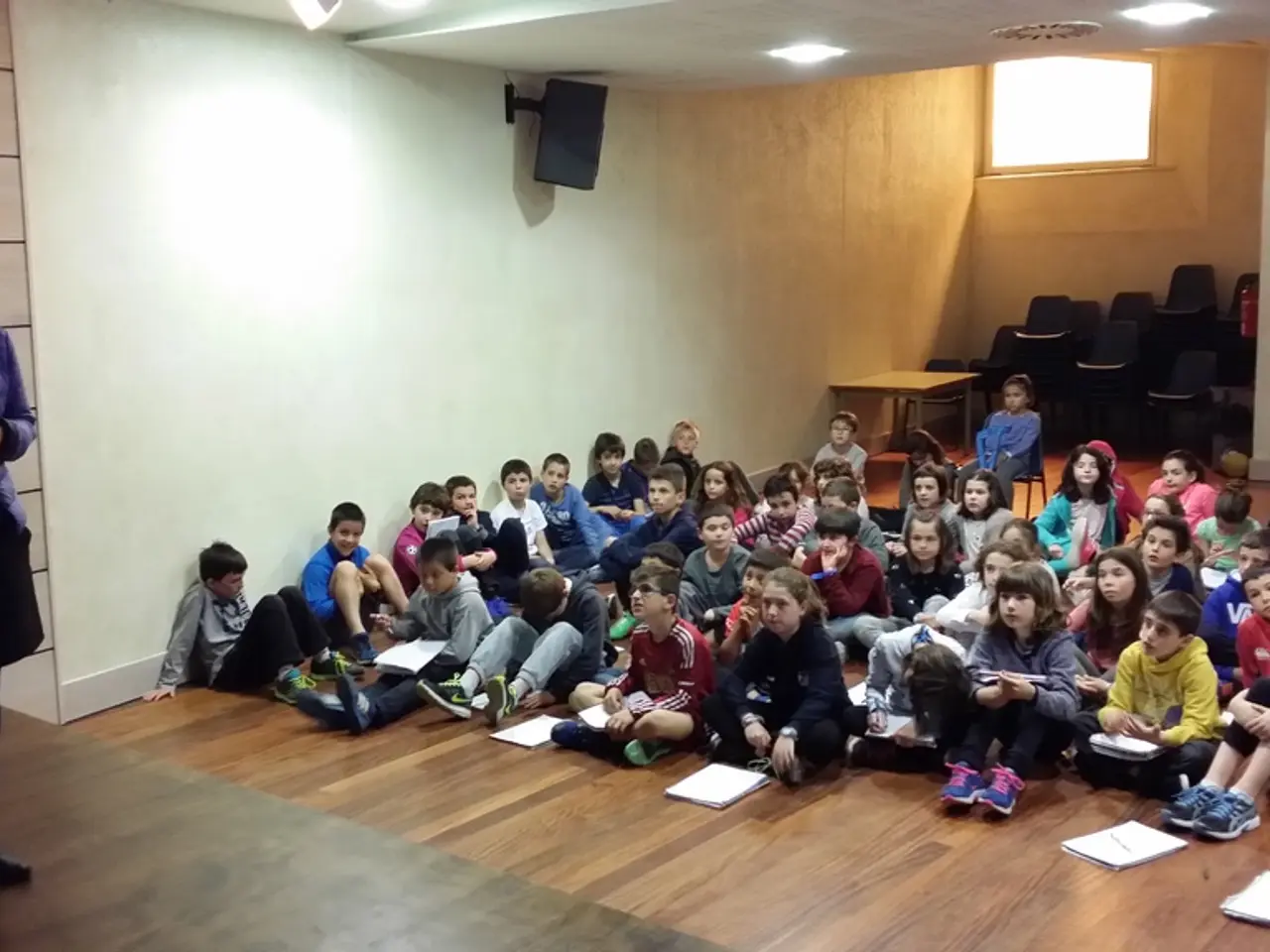Finnish reindeer undergo heat distress amidst summer's unprecedented heatwave in Finland
Record-Breaking Heatwave in Finland Causes Strife for Reindeer Populations
Finland is currently experiencing a record-long heatwave, with temperatures above 30°C for 22 consecutive days, the longest such heatwave since records began in 1961. This prolonged heat has led to significant suffering and some deaths among reindeer populations in Lapland, the hometown of Santa Claus.
Reindeer, adapted to cold Arctic conditions, struggle to regulate their body temperature during these hot spells, leading to overheating and stress, especially when they must flee predators like wolves. Many reindeer are abandoning their usual forest habitats to seek shade and cooler areas near human settlements and cities, an unusual behavior indicating distress from the heat.
The Finnish Reindeer Herders' Association has expressed alarm over the heatwave's impact on reindeer. Anne Ollila, the director of the Association, stated that reindeer struggle in heat, unlike cold temperatures. The reindeer have suffered greatly due to the long and harsh heatwave in Lapland.
This heatwave is directly connected to global warming trends, particularly the accelerated warming in Arctic and northern European regions. Europe has seen the fastest warming per decade since 1990, followed closely by Asia, according to the US National Oceanic and Atmospheric Administration (NOAA). Scientists view such recurring and extreme heatwaves as markers of global warming, which are expected to become more frequent, longer-lasting, and more intense in the future.
The ongoing distress among reindeer populations in Finland is a clear example of how climate change and raising temperatures impact Arctic wildlife and ecosystems. This situation highlights the vulnerability of species dependent on cold climates to ongoing global warming.
In addition to the heat, reindeer are also facing other challenges. Many are seeking shade and escaping horseflies and mosquitoes near settlements, including people's backyards. However, there have been no reports of mass deaths of reindeer due to the heatwave.
The Finnish Meteorological Institute announced this heatwave on Monday, August 5. As the heatwave continues, efforts are being made to support the reindeer and mitigate the impact on their populations. The situation serves as a reminder of the urgent need to address climate change and its effects on our planet's wildlife.
[1] Finnish Reindeer Herders' Association: https://www.poronjuhta.fi/ [2] Finnish Meteorological Institute: https://ilmatieteenlaitos.fi/ [3] US National Oceanic and Atmospheric Administration (NOAA): https://www.noaa.gov/ [4] European Environment Agency: https://www.eea.europa.eu/ [5] World Wildlife Fund (WWF): https://www.wwf.org/
\n\nReferences: - Finnish Reindeer Herders' Association - Finnish Meteorological Institute - US National Oceanic and Atmospheric Administration (NOAA) - European Environment Agency - World Wildlife Fund (WWF)
- The prolonged heatwave, causing suffering and deaths among reindeer populations in Lapland, is a result of global warming trends, specifically the accelerated warming in Arctic and northern European regions.
- As the impact of climate change becomes more apparent, this heatwave-induced distress among reindeer populations serves as a stark reminder of the vulnerability of species dependent on cold climates and the urgent need to address climate change.








